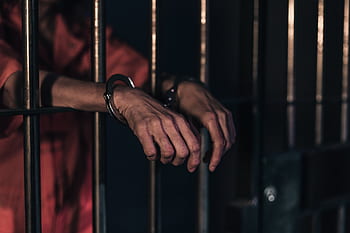
“Reefer makes darkies think they’re as good as white men.” So believed Harry Anslinger, founding commissioner of the Bureau of Narcotics and man of many terrible opinions, who did not even attempt to disguise his overt racism while crafting policies specifically meant to punish people of color. Much like policing, it is well known that the prohibition of marijuana, and the so-called War on Drugs as a whole, is rooted in a conscious, strategic effort to suppress and imprison people of color. Dubbed “The New Jim Crow” by Michelle Alexander in her book of the same name (if you haven’t read it, now would be a good time), modern mass incarceration acts as an extension of the oppression of Black communities made foundational to our nation through the institution of slavery, re-codified into law through the War on Drugs, and perpetuated by discriminatory policing to this day.
Despite the legalization of cannabis for adult use gaining traction, more than 650,000 Americans, the majority of whom are people of color, are arrested annually for violating marijuana laws. In Rhode Island, Black people are 3.3 times more likely than white people to be arrested for marijuana (in other states, they can be 6 to 10 times more likely). Once involved in a police encounter, Black individuals are 3.5 times as likely to be killed by the police than their white counterparts.
While the War on Drugs is certainly the fuel that powers the school-to-prison pipeline, it is also used to defend brutal police killings of unarmed Black Americans — George Floyd’s murder was justified by a rumor that he may have been on meth, Philando Castile’s killer cited his use of marijuana as just cause, and Breonna Taylor was shot while asleep in a botched police drug raid (while the suspect was already in custody).
Here’s the thing: When it comes to race and cannabis, decriminalization is not enough. Legalization is not enough. And even state-sponsored cannabis equity programs in legal states don’t even come close to righting the wrongs of hundreds of years of systemic discrimination. Even ending the War on Drugs completely wouldn’t put an end to institutional racism, but it’s one important and long-overdue step in the right direction. The cannabis industry, predicted to be worth more than $1 billion in 2020, has a responsibility to prioritize anti-racism and reparative efforts to communities most impacted by cannabis criminalization.
We need automatic expungement and clemency for non-violent drug offenders, and we need robust equity programs that effectively address the racial inequity that persists in the cannabis industry. We should also defund and demilitarize the police while reinvesting resources into communities where they are badly needed. At the very least, can we agree to stop using legal cannabis revenue to fund policing and drug enforcement? Instead of investing in research or equity programs, Portland, Oregon, imposes a 17% state-mandated tax on cannabis, 15% of which is allocated for the State Police, and an additional 3% tax that goes to the Portland Police department. In California, 20% of the state Marijuana Tax Fund goes to police budgets, and in many states, if tax revenue is destined for the general fund (ahem, Rhode Island), it often ends up in the hands of the police.
The way that legal cannabis markets are set up is critical to ensuring a safe and equitable industry for all, but the way that the cannabis industry responds to this now undeniable movement centering on Black lives will be very telling in terms of how white supremacy infiltrates every corner of this nation, even in an industry rooted in compassion, grassroots activism and civil rights. Where the money comes from and ends up is crucially important, but one of the most fundamental steps the industry should take is to elevate the voices of those most affected by the war on drugs, and ensure that the Black community has a seat at the table when it comes to industry oversight and decision-making. The cannabis industry is just one part of a hugely complex and intersectional movement towards anti-racism in all aspects of society, and the guiding principles of the BLM movement should be centered in any conversation around equity in the cannabis industry.
One can only hope that Steve DeAngelo, longtime cannabis activist and founder of the Last Prisoner Project, speaks for the entire industry when he says: “We have a debt of history we need to honor and need to pay. This industry would not exist without the efforts of generations of African Americans, who were the first people to bring cannabis to North America…Cannabis is a gift of the African American community to the rest of the country.”



